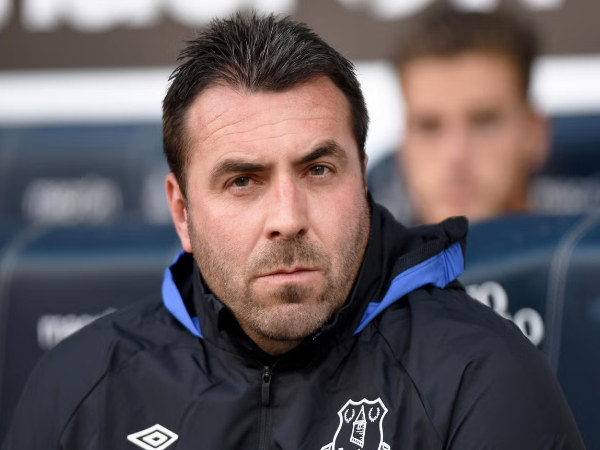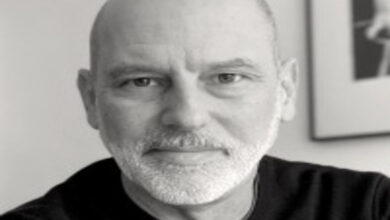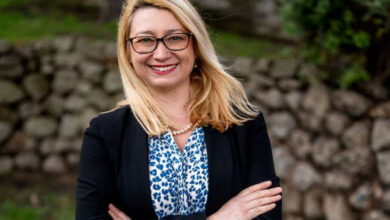David Unsworth: The Inspirational Journey of England’s Resilient Footballer and Coach
From Premier League Defender to Mentor of the Next Generation

David Unsworth is an English football coach and former professional footballer, born on 16 October 1973 in Chorley, Lancashire, England. Known for his robust defending and leadership, he played primarily as a centre-back or left-back from 1991 to 2009. After retiring, Unsworth transitioned into coaching, most notably serving as academy director and under-23s head coach at Everton before managing Oldham Athletic. As of 2025, David Unsworth continues to be recognized as a passionate mentor and one of English football’s respected figures.
Early Life and Background
David Gerald Unsworth was born on 16 October 1973 in Chorley, a historic market town in Lancashire, England. Growing up in a working-class environment, Unsworth developed a strong sense of discipline and resilience early in life—traits that would later define his footballing style. From a young age, he was captivated by the game, spending hours honing his defensive skills in local parks and joining youth football clubs where his natural talent quickly became evident.
Football wasn’t just a sport for Unsworth—it was a calling. His dedication, physical strength, and tactical intelligence helped him attract the attention of professional scouts while still in his teenage years. By his late teens, he had signed with Everton Football Club, a defining step in his journey toward football stardom.
David Unsworth Age and Physical Presence
As of 2025, David Unsworth is 52 years old. Standing at around 1.85 meters (6 feet 1 inch), his towering presence on the pitch was matched by his commanding voice and leadership. Even after retirement, he maintained an athletic build and a disciplined lifestyle, characteristics that reflect his lifelong commitment to the game.
Unsworth’s maturity and calm demeanor have made him a respected figure not only among players but also in the coaching community. His experience bridges multiple generations of English football, allowing him to connect with both veteran professionals and emerging young talents.
Professional Playing Career
The Everton Years: A Boyhood Dream Come True
Unsworth’s professional debut came with Everton in 1992. As a product of the club’s youth academy, his promotion to the senior squad was a moment of pride for both him and the Everton faithful. Known for his hard tackles and fearless defending, Unsworth quickly cemented his place in the team.
He was a key part of Everton’s 1994–1995 FA Cup-winning squad, one of the club’s most memorable triumphs. His performances during that period showcased his consistency and determination. Unsworth became known for not only his defensive prowess but also his remarkable ability to score penalties—a rare trait for a defender.
Other Clubs and Notable Transfers
Over the span of his 18-year playing career, Unsworth represented several top English clubs. After his first stint at Everton (1992–1997), he joined West Ham United and later had a brief spell at Aston Villa. He returned to Everton in 1998 for another productive six seasons, further solidifying his legacy at Goodison Park.
Unsworth’s career also included tenures at Portsmouth, Sheffield United, Wigan Athletic, Burnley, Ipswich Town (loan), and Huddersfield Town. Across all these clubs, he amassed over 440 league appearances and scored 45 goals—an impressive tally for a defender.
Playing Style and Reputation
David Unsworth was admired for his physical strength, aerial ability, and composure under pressure. He was the type of defender every team needed—a leader who could organize the backline and motivate those around him. His left-footed accuracy and power made him a reliable penalty taker, earning him the nickname “Rhino” among fans for his robust style of play.
International Career
Though Unsworth’s international career was brief, it remains an important chapter in his journey. He represented England at the under-21 level, earning seven caps, before making his senior England debut in 1995. While competition for defensive positions was fierce, his call-up to the national team reflected the high regard in which he was held during the peak of his playing days.
Transition into Coaching
After officially retiring from professional football in 2009, David Unsworth immediately turned his focus to coaching. His passion for developing young talent led him back to Preston North End, where he began as a first-team coach and later served as caretaker manager.
In 2013, Unsworth returned home—to Everton—this time as part of the academy’s coaching setup. His success in nurturing young players and building strong development systems earned him the title of Academy Director and Under-23s Head Coach.
Under his guidance, Everton’s youth teams flourished. The club’s U23 side won the Premier League 2 title twice, a testament to his ability to build competitive, disciplined squads that reflected his footballing philosophy.
Managerial Stints and Leadership
Caretaker Roles at Everton
Unsworth was twice appointed caretaker manager of Everton’s senior team, first in 2016 and again in 2017. These temporary roles came during periods of transition for the club, and his steady leadership helped maintain stability. His tactical approach focused on discipline, teamwork, and giving opportunities to young players—a continuation of his academy principles.
Oldham Athletic Management
In September 2022, Unsworth accepted his first full-time managerial position at Oldham Athletic, then playing in the National League. Taking charge of a club with a passionate fan base and a challenging environment, Unsworth sought to rebuild the team from the ground up.
However, after a difficult start to the 2023–24 season and a run of poor results, his tenure ended in September 2023. Despite the setback, Unsworth’s time at Oldham demonstrated his commitment to leadership and long-term development rather than short-term fixes.
David Unsworth Family and Personal Life
David Unsworth has always been a private individual, keeping his family life largely out of the public spotlight. He is married to Adele Unsworth, and together they have children, including Jaye Unsworth, who has also pursued a career in football.
Unsworth’s dedication to family mirrors his professional values—loyalty, discipline, and perseverance. His grounded nature and focus on mentorship stem in part from his upbringing in a tight-knit community and the importance he places on humility and hard work.
Off the pitch, Unsworth is known for his charitable work and involvement in youth development programs, particularly those centered on education and football training for underprivileged children.
David Unsworth Net Worth
As of 2025, David Unsworth’s net worth is estimated to be around $3 million to $5 million USD. His wealth primarily comes from his long playing career, coaching positions, and managerial contracts. During his time at Everton—both as a player and coach—he earned a reputation as a reliable professional, which also contributed to steady financial success.
Unsworth has lived comfortably but modestly, avoiding the lavish lifestyle often associated with footballers. His focus has always been on stability, family, and giving back to the sport that shaped his life.
Coaching Philosophy and Legacy
Unsworth’s coaching philosophy centers on three key principles: discipline, development, and opportunity. He believes that young players should be molded not only as athletes but as responsible individuals. His emphasis on mental strength and team unity has inspired many players who came through Everton’s academy system during his tenure.
Former Everton youngsters often credit Unsworth for their growth, praising his honesty and commitment to their improvement. His approach combines modern football techniques with old-school values—something increasingly rare in today’s game.
David Unsworth Wikipedia Overview
According to Wikipedia, David Gerald Unsworth is an English football coach and former professional footballer best known for his time at Everton and his role in developing youth talent. His Wikipedia page highlights his career statistics, club history, and managerial record, as well as his notable achievement in winning the FA Cup with Everton in 1995.
While Wikipedia provides a factual outline, the depth of Unsworth’s influence extends far beyond statistics—his impact as a mentor, leader, and ambassador for English football remains significant.
Personality and Reputation
Those who have worked with Unsworth describe him as firm but fair—a leader who demands effort and respect. His professionalism, honesty, and sense of humor have earned him admiration across the football community. Even after setbacks in management, Unsworth’s resilience and dedication continue to define him.
He is often seen as a role model for players transitioning from professional football to coaching, demonstrating that leadership is built on experience, empathy, and continuous learning.
Current Activities and Future Prospects
Following his departure from Oldham Athletic, Unsworth has reportedly been involved in coaching consultancy, mentoring young coaches, and working on football development projects. Many in the football community believe he will soon return to management, possibly at an EFL club or within a Premier League academy.
His deep understanding of player development and tactical awareness make him an ideal candidate for clubs focusing on building from within. As English football continues to evolve, Unsworth’s philosophy of nurturing discipline and character ensures he remains a relevant and respected figure in the sport.
Conclusion: The Legacy of David Unsworth
David Unsworth’s journey from a determined young defender in Chorley to a respected coach and mentor embodies the essence of English football’s working-class roots. His legacy goes beyond trophies and statistics—it lies in the players he has guided, the teams he has inspired, and the values he continues to represent.
In a football world often dominated by glamour and controversy, David Unsworth stands out as a symbol of integrity, loyalty, and passion for the game. His story is a reminder that true greatness in football is not only measured by titles but by the lasting impact one leaves on others.



